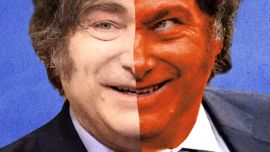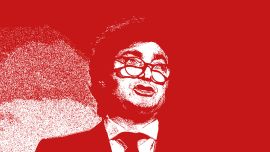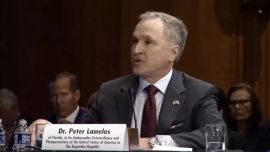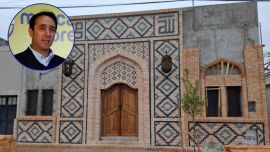In an exit press interview three months ago, then-US ambassador in Buenos Aires Marc Stanley said that Argentina’s former president Cristina Fernández de Kirchner, “like her or not, will go down in history as one of the most influential women in Latin America.” When Stanley made those statements, Fernández de Kirchner had already been slapped with an appeals court confirmation of a prison sentence for corruption and a lifelong ban from political office.
Two months later, the US State Department (to which Stanley reported), has declared Fernández de Kirchner and her family “ineligible for entry into the United States” due to their “involvement in significant corruption.” According to US Secretary of State Marco Rubio, the ex-president “abused her position by orchestrating and financially benefiting from multiple bribery schemes involving public works contracts, resulting in millions of dollars stolen from the Argentine government.”
Unlike Washington, the courts in Argentina have not been pendular regarding Fernández de Kirchner’s legal situation. Last week, she made a final legal move: she pleaded before the Supreme Court to take on a special complaint and review the sentence against her. If the nation’s top court turns down the petition, Fernández de Kirchner should be arrested immediately — though she will not go to jail and could request house arrest, given her age.
This issue places Argentina in a league of Western nations where the courts are playing key roles in banning top politicians. The latest example occurred this week in France, where Marine Le Pen was found guilty of embezzlement and barred from running for office for five years, meaning that unless a cumbersome appeals process succeeds, she will be out of the 2027 presidential race, which she currently leads in the polls. “I am eliminated, but in reality, it’s millions of French people whose voices have been eliminated,” said Le Pen in response.
Brazil has been the epitome of weaponised courts in recent years. Luiz Inácio Lula da Silva was jailed in 2018 on corruption charges and blocked from running in that year’s election, which catapulted Jair Bolsonaro to the presidency. “They did not imprison a man. They tried to kill an idea,” Lula said upon his release. A few years later, in 2023, Bolsonaro was banned from running for office until 2030 following his followers’ attempt to overturn the election he lost to Lula the previous year. “Elections without Bolsonaro are a denial of democracy in Brazil,” he declared.
Fernández de Kirchner has seen herself in their mirror and repeatedly complained about a campaign of “lawfare” against her. But she could also seek another comparison in Donald Trump. The US president was convicted in May 2024 on 34 felony counts of falsifying business records to make hush money payments to a prostitute during the 2016 election campaign. He was the first former US head of state ever to find themself in that position. “The real verdict is going to be in November by the people,” Trump said at the time – he was right. His sentencing was delayed until after he had won the 2024 presidential race. Afterward, the judge discharged him with no punishment — no imprisonment, fines or probation. He allowed Trump to proceed with his second inauguration.
Can Fernández de Kirchner ‘do a Trump’? CFK – as Marco Rubio called her in his slightly too cuddly communiqué – will soon have to decide whether to run for Congress in this year’s election. Her inexplicable political confrontation with Buenos Aires Province Governor Axel Kicillof (once her political protégé) adds another layer of drama to the decision, which – right up until the very last moment – could still be killed by the strike of the Supreme Court’s pen.
The next question is what is best for President Javier Milei’s administration. The President is elevating both Fernández de Kirchner and Kicillof as his political enemies, with the 2027 presidential race in mind. The former president seems to have a lower ceiling than the governor, who is both younger and less stained by corruption. Kicillof carries the curse of having a surname that starts with a K, but there is nothing he can do about it.
It is difficult to imagine a Fernández de Kirchner comeback à la Trump. Or rather, her comeback has already happened, no matter how much she denies it – it was her decision to second the Alberto Fernández Presidency (2019–2023), a ticket that was created by her political will and then broken by her political mismanagement.
The most likely scenario is that Fernández de Kirchner will live to fight another political day, but she will be less relevant than in the past. The Supreme Court will look the other way and let her run — and eventually obtain congressional immunity from jail — so that she can secure a seat, even if only in the Buenos Aires Province Legislature, representing the populous southern Buenos Aires suburbs where her power base lies. Anything beyond that would be surprising, but then nothing we haven’t seen in the recent past.























Comments